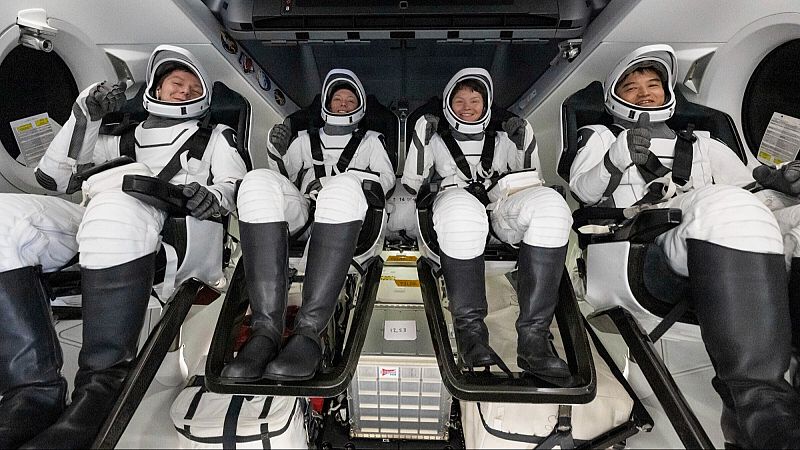Going to space could speed up biological ageing, NASA study finds

Going to space could speed up biological ageing, according to new research that tracked changes to human stem cells during four missions in space.
The study, which was supported by the American space agency NASA, found that blood cells that were sent to space lost some of their ability to make healthy new cells and started showing genetic damage, both signs of accelerated ageing.
“Space is the ultimate stress test for the human body,” said Dr Catriona Jamieson, one of the study’s authors and director of the Sanford Stem Cell Institute at the University of California San Diego in the United States.
Jamieson’s team used artificial intelligence (AI)-powered imaging tools to track real-time changes to cultured human cells that were sent on four SpaceX missions to the International Space Station (ISS).
They used haematopoietic stem and progenitor cells (HSPCs), which are responsible for blood cell production, making them critical for human health, including immune system function.
When these cells stayed in space for 32 to 45 days, they started losing their ability to make healthy new cells, the study found. Signs of molecular erosion, for example DNA damage and shorter telomeres, also become more apparent.
“These findings are critically important because they show that the stressors of space – like microgravity and cosmic galactic radiation – can accelerate the molecular ageing of blood stem cells,” Jamieson said in a statement.
Notably, when these cells returned to Earth and were placed in a healthier environment, some of the damage began to reverse, according to the study, which was published in the journal Cell Stem Cell.
The findings underscore the need for new measures to protect astronauts’ health during extended space missions, the researchers said.
They now plan to study whether the same molecular changes are found in actual astronauts during space missions, with the goal of identifying medical or genetic antidotes that could help protect human health.
“Understanding these changes not only informs how we protect astronauts during long-duration missions but also helps us model human ageing and diseases like cancer here on Earth,” Jamieson said.
“This is essential knowledge as we enter a new era of commercial space travel and research in low Earth orbit”.
Today

